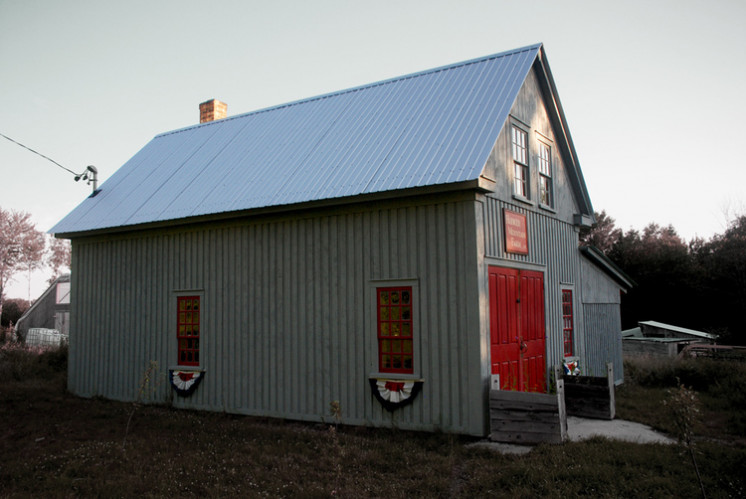
If you are looking to visit Hooker Mountain Farm Distillery, don’t look for an industrial complex or warehouse – instead, keep your eyes peeled for the (possibly pants-less) 5-year-old running down the farm road to greet you. Ask that same 5-year-old how you make whiskey and he’ll tell you to start by growing the grain.
Kempton and Carrie [and Avi and baby Mallow] Randolph are farmers first and foremost – each aspect of their distillery is both from the farm and feeds back into the farm. “All alcohol is an agricultural product,” Kempton explained, “grain growing, raising animals and distilling go hand-in–hand.” The distilling process removes the starch, leaving a highly digestible, protein-rich by-product that the animals love. Kempton has noticed his feed bill cut by 75%, since switching the pigs to primarily fermented grain feed. “During prohibition,” Kempton joked, “you could always catch a moonshiner because he had the fattest pigs and his kids had new shoes.”
“Around the turn of the 18th century, Vermont used to have an abundance of farm distilleries,” Kempton explained, “Vermont was the breadbasket of the United States, and the craft distilling industry was booming.” Alcohol was the perfect value-added product for a small farm. It is high-value, low volume, shelf stable and highly desirable. “Prohibition served to industrialize what was practically a cottage industry,” Kempton continued, “They even cut down entire orchards used for making brandy and cider.” After prohibition, distilling was highly regulated making it practically impossible for anyone interested in starting a small, craft distillery. Now, with friendlier laws favoring craft distillers, operating a farm distillery still has many barriers. For your product to be considered an ‘Agricultural Product’ it must contain 50% farm-grown ingredients. Kempton and Carrie are using almost entirely farm-grown ingredients in their whiskeys and liquors, but there is one essential component of alcohol that does not count as farm-derived: water. To get around this major obstacle, Hooker Mountain Farm Distillery uses sap from their sugar bush to proof down the spirits.
Corn, grain, potatoes, maple, apples, berries, herbs, peppers, even the wood used to build the distillery and age Hooker Mountain’s whiskeys is grown on farm. Kempton is running his still four days a week, but a lot of that time is hands-off and allows time for other farm work – that’s another reason why distilling is farm-friendly. Hooker Mountain is currently producing a series of whiskeys – Sap, Birch, 2nd Republic and Wood Heat all based on unique recipes with varying mash bills, flavorings, and aged on different woods. Kempton is also crafting Hooker Mountain cordials that follow the season from lilac to spearmint and, soon, berries! You can try these elixirs at the Montpelier Farmers’ Market every Saturday or visit the Cabot distillery Saturdays and Sundays from noon to 6pm.
Those interested in a deep-dive into on-farm distilling, Hooker Mountain Farm Distillery is offering an immersive weekend course to look at the entire seed to grain to bottle (to pig!) process. “We want to help people learn about this process and inspire them to go down this path,” Kempton shared, “this is a model that can support a small farm.” Detailed information about the weekend can be found here - http://www.hookermountainfarm.com/courses/ - this is a unique, not to be missed opportunity for anyone interested in craft distilling.













